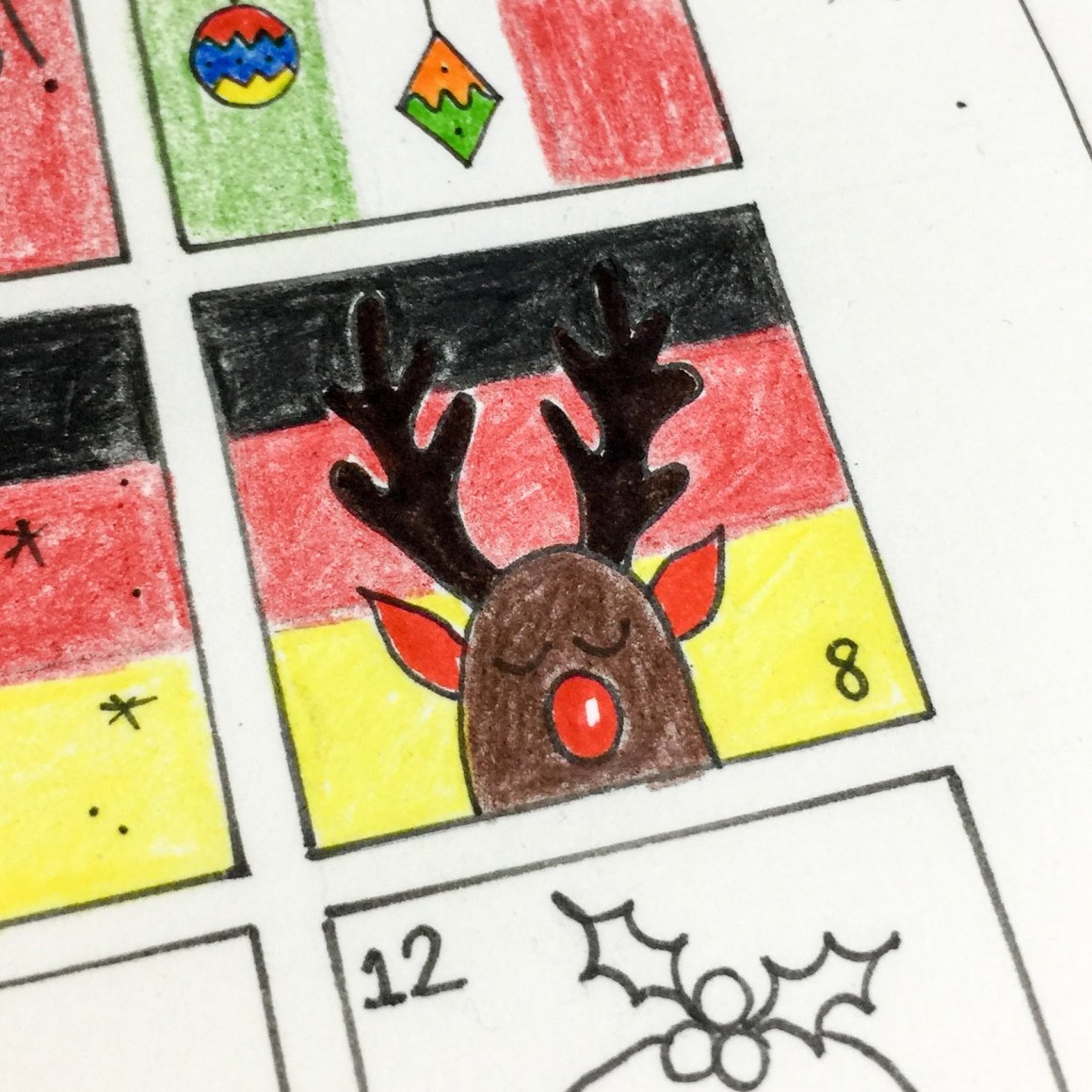Guten Tag euch allen! It has been a little while since I have used my German so I was feeling a little rusty before I started this challenge. I learnt German earlier this year for our road trip and was very pleased with what I managed to learn in a couple of months before our trip. If you haven’t read about our amazing German adventure check our my diary post to see what we got up to.
The reason for this whole thing was part of my Clear the List goal for the month. To learn about the Christmas traditions, greetings and food in the languages that I have learnt to speak so far. 4 challenges in 6 languages fits perfectly in my festive advent tracker.
Let’s get started.
Day 5 – Christmas Greetings

I knew that I was going to have a tongue twister on my hands with some of these phrases before I even started my research. German is a funny language that way. They just love their compound words and phrases. Here is a selection of my favourites:
Frohe Festtage! – Happy Holidays/Season’s Greetings
Frohe Weihnachten! / Frohes Weihnachtsfest! – Merry Christmas/ A Joyous Christmas Celebration
Ein frohes Weihnachtsfest und alles Gute zum neuen Jahr! – A joyful Christmas (festival) and best wishes for the New Year!
Ein glückliches neues Jahr! – Happy New Year!
Zum neuen Jahr Gesundheit, Glück und viel Erfolg! – Health, happiness, and much success in the New Year!
I am still struggling to get my tongue around all the syllables but it is a lot of fun trying. Give it a go and see what you think.
Day 6 – Christmas Dinner

Christmas Eve
In Germany, Christmas trees are traditionally decorated on Christmas Eve amid a sea of ribbons, wooden ornaments and proper burning candles. Then once they have succeeding in not setting the house alight with all the open flames, they exchange gifts. I think giving gifts the day before is a great idea. Then you have the whole of Christmas day to focus solely on food. Oh… and family of course!
The Christmas eve meal is usually fish based as it was traditionally eaten before midnight mass by the many Catholic German’s and so it had to be light; very similar to Italy in that way. Some of the more modern additions are chunks of roasted beef, cheese fondu and sausages. German sausage and melted cheese at Christmas? Sounds like a fantastic idea to me!
Here is a selection of the vocabulary I have added to my German list to learn:
Der Karpfen – Carp
Der Lachs – Salmon
Der Seehecht – Hake
Die Kartoffelpuffer – Potato Fritters
Das Sauerkraut – Pickled Cabbage (absolutely delicious)
Das Käsefondue – Cheese fondue
Der Rinderbraten – Roast Beef
Die Wurst – Sausage
Christmas Day
As the Christmas eve meal is light, this leaves a lot of room the following day. Festivities usually start with a continental style breakfast with bread, cold meats and cheese; some even opting for a festive bread. Then as they are cooking the main attractive you can find many Germans snacking on Lebkuchen (Gingerbread).
The main meal of the day is usually a roasted bird (Goose, Turkey or Duck) with Serviettenknödel (Bread Dumplings) all washed down with a glass of wine. Here is a recipe I found on Youtube for the Serviettenknödel in German. I may have to give this a try when I get back in to learning German (so I can actually understand the recipe).
The ending to the day of feasting is usually completed by a sweet dessert of apple or oranges with cinnamon. There isn’t a standard dessert that is made so I have decided to find a recipe for Apfelstrudel (Apple Strudel) which I had in Germany earlier this year and fell in love with.
Day 7 – Christmas Carols

While searching around I have found a great playlist of German Christmas carols. Some of them even have the lyrics so you can sing along.
I love listening to songs in other languages that I know in English. I think it is fascinating to see how they have adjusted the phrases to keep with the overall meaning and the tune. Very clever stuff!
Day 8 – Christmas Story

While researching the German Christmas stories and traditions I came across this great article from Fluent U that not only tells you about the German Christmas traditions but also explains how to add them to your language learning routine to increase your fluency. I am definitely going to be taking some pointers from them on that one. Check out their article to see which story is your favourite. Let me know in the comments below.
Challenge 2 complete! I am absolutely loving all this festive language fun. Next stop Spanish in another 4 days. Keep your eyes peeled for it.
Ciao for now!



